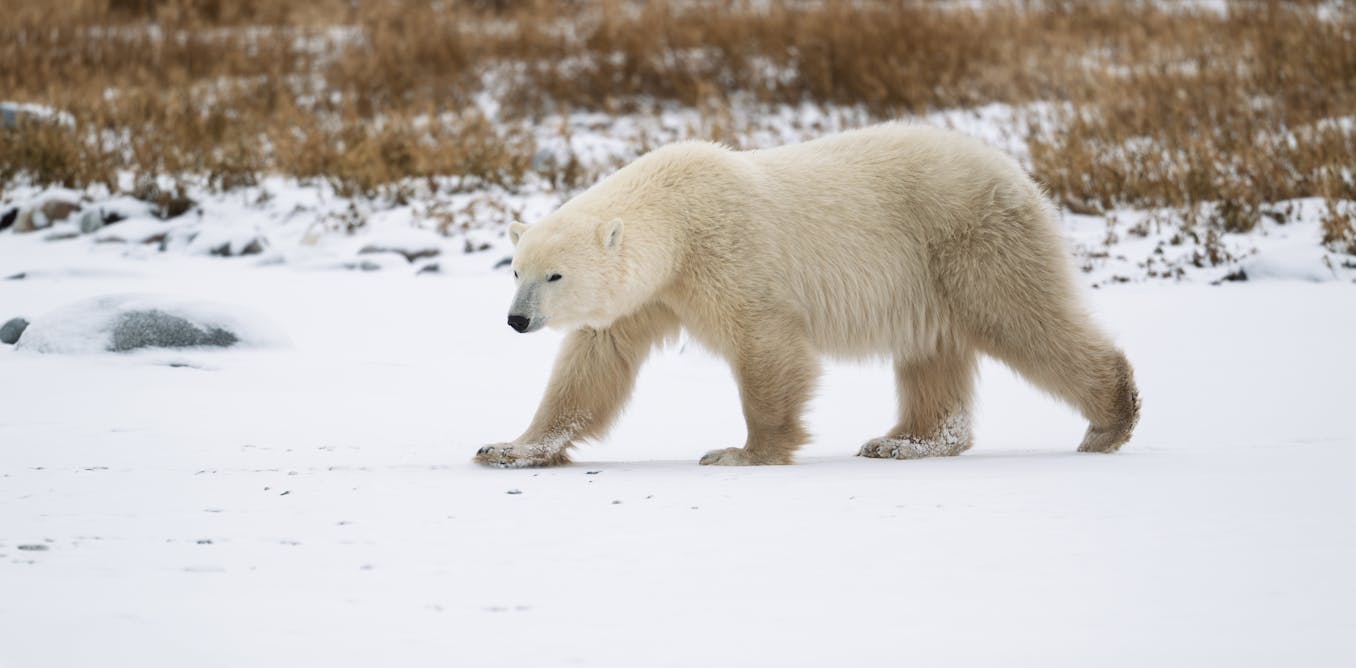Numerous tourists are concerned about the presence of sargassum on Mexican beaches, as it restricts access to the beach as it builds up. Depending on tide, wind, and other variables, the amount of seaweed can vary greatly.
We encourage you to read on to find out more about the topic if you’re curious about what to expect on your next vacation.
Suggested: All year round sargassum free beaches in the Caribbean
Seaweed-affected locations in 2024 (Photos from Sargassum reporting FB group)
Cancun
The latest photos from Cancun show no signs of Sargassum.
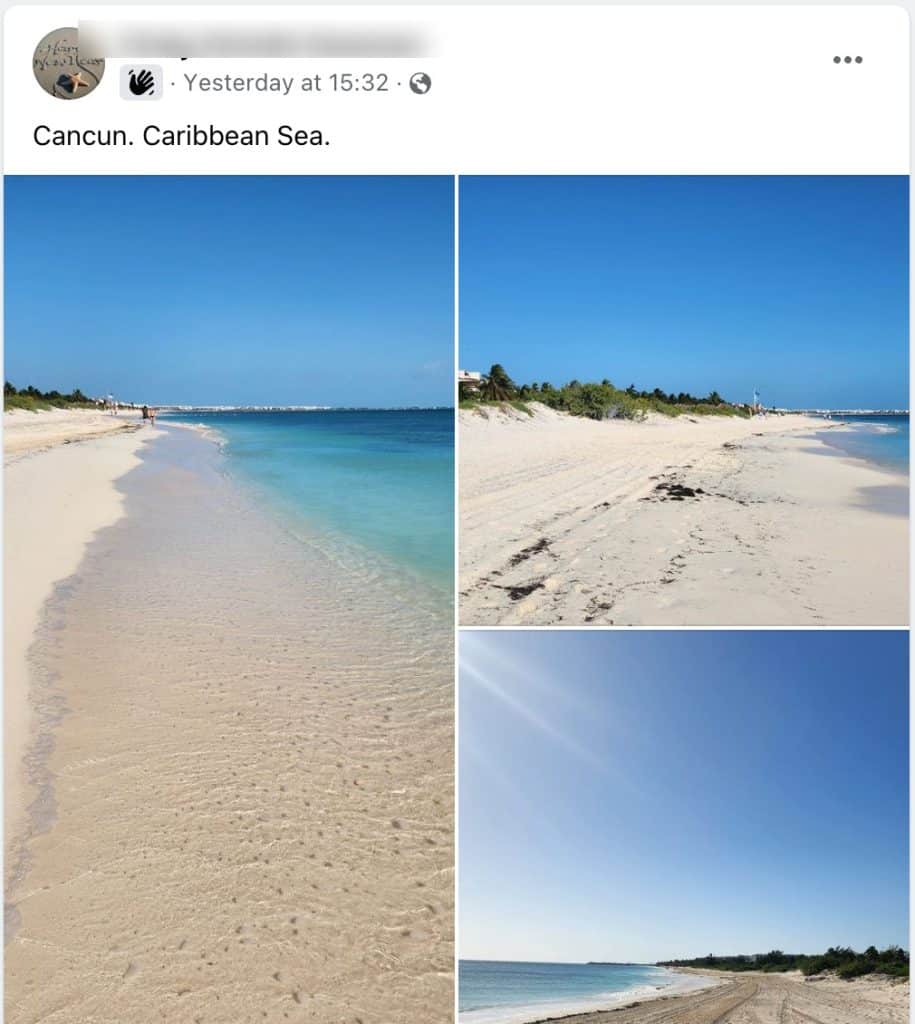
Playa del Carmen
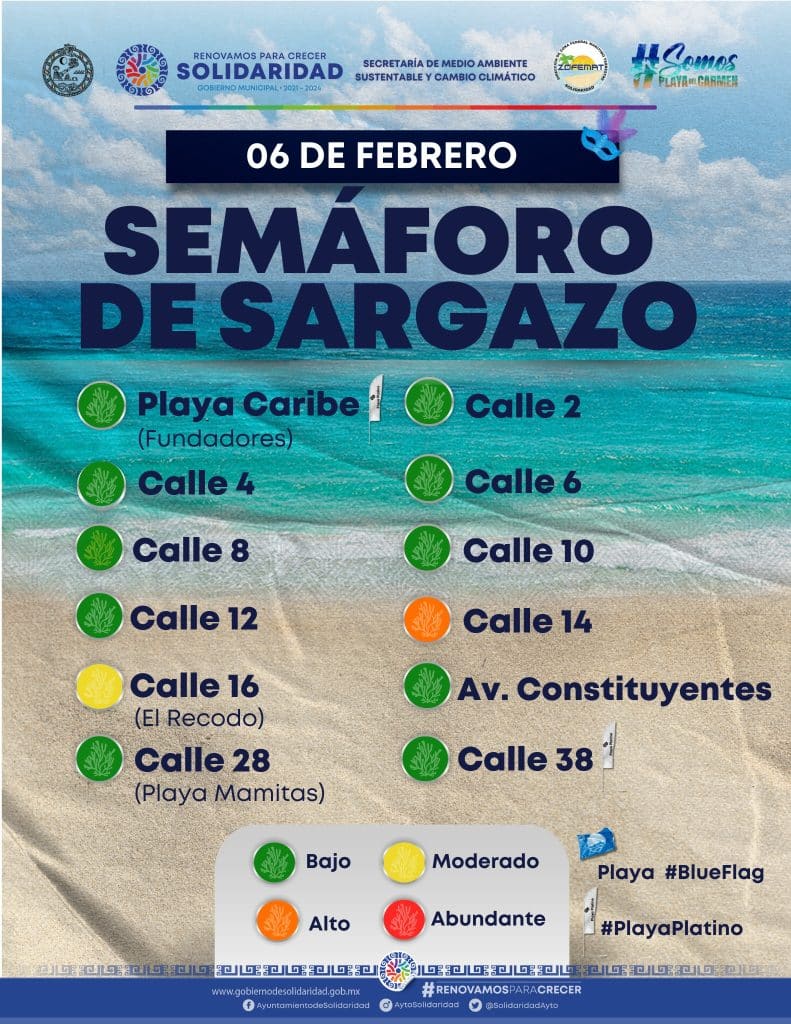
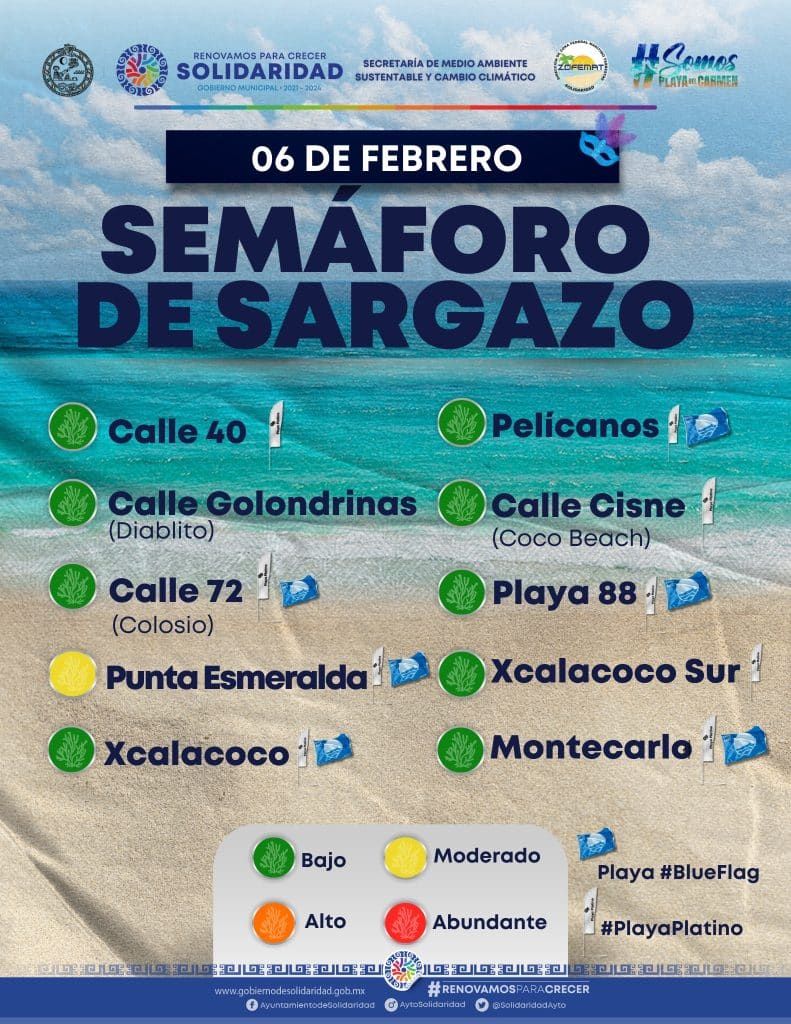
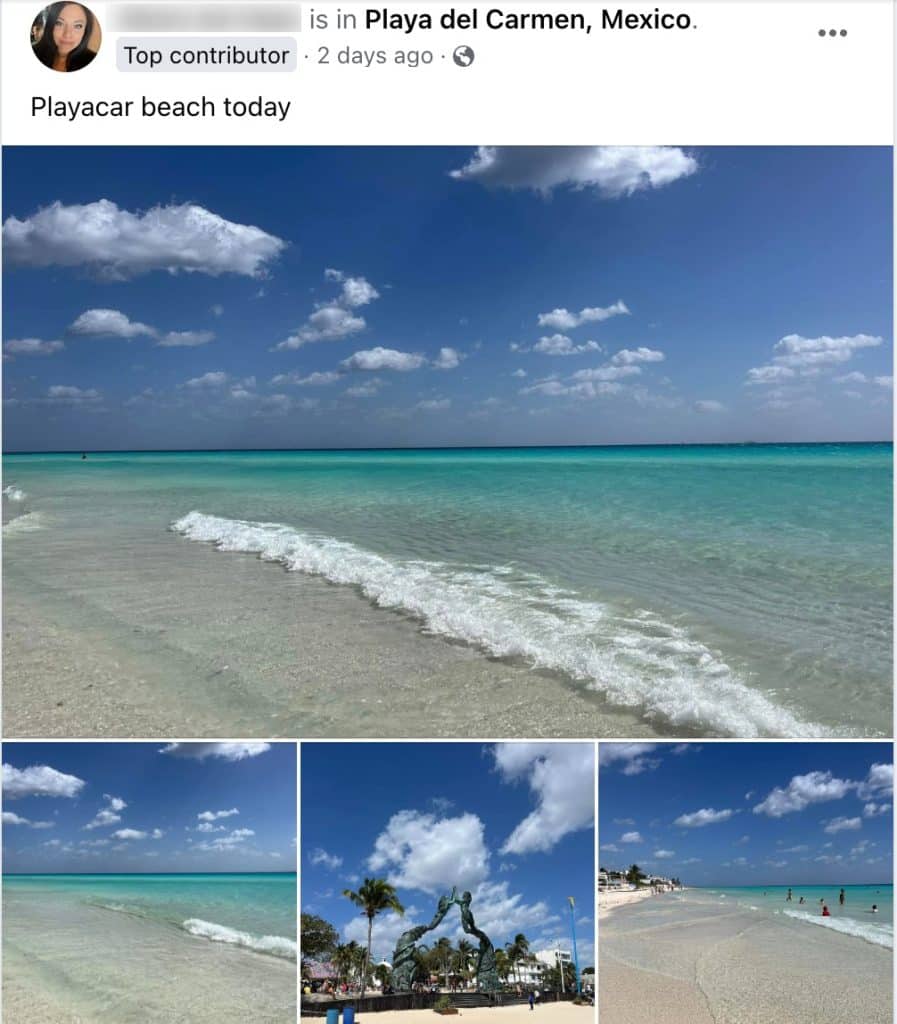
The current distribution of sargassum in Quintana Roo is mixed, with a trend of low concentration of the algae.
The smelly seaweed appears to be absent from the main beach beside Parque Los Fundadores, but it is present in moderate amounts at Playa 88 and Punta Esmeralda, which are situated north of the city.
Tulum
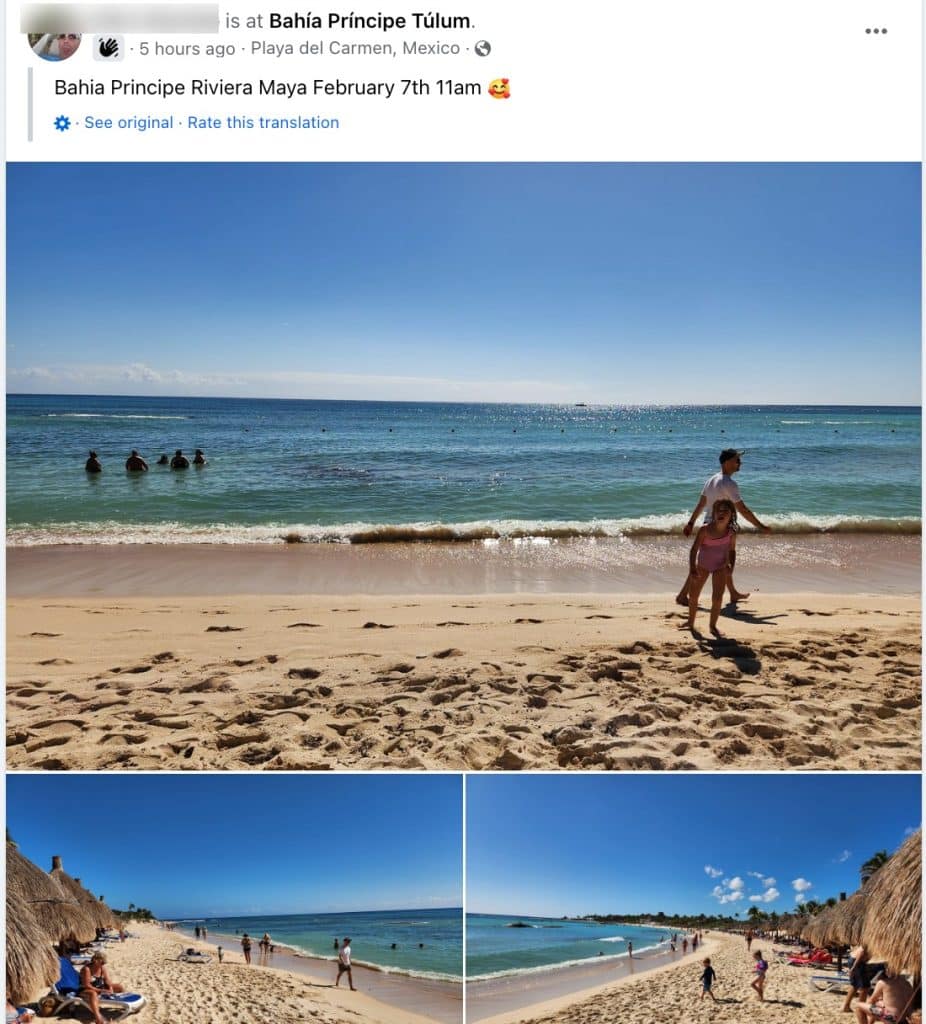
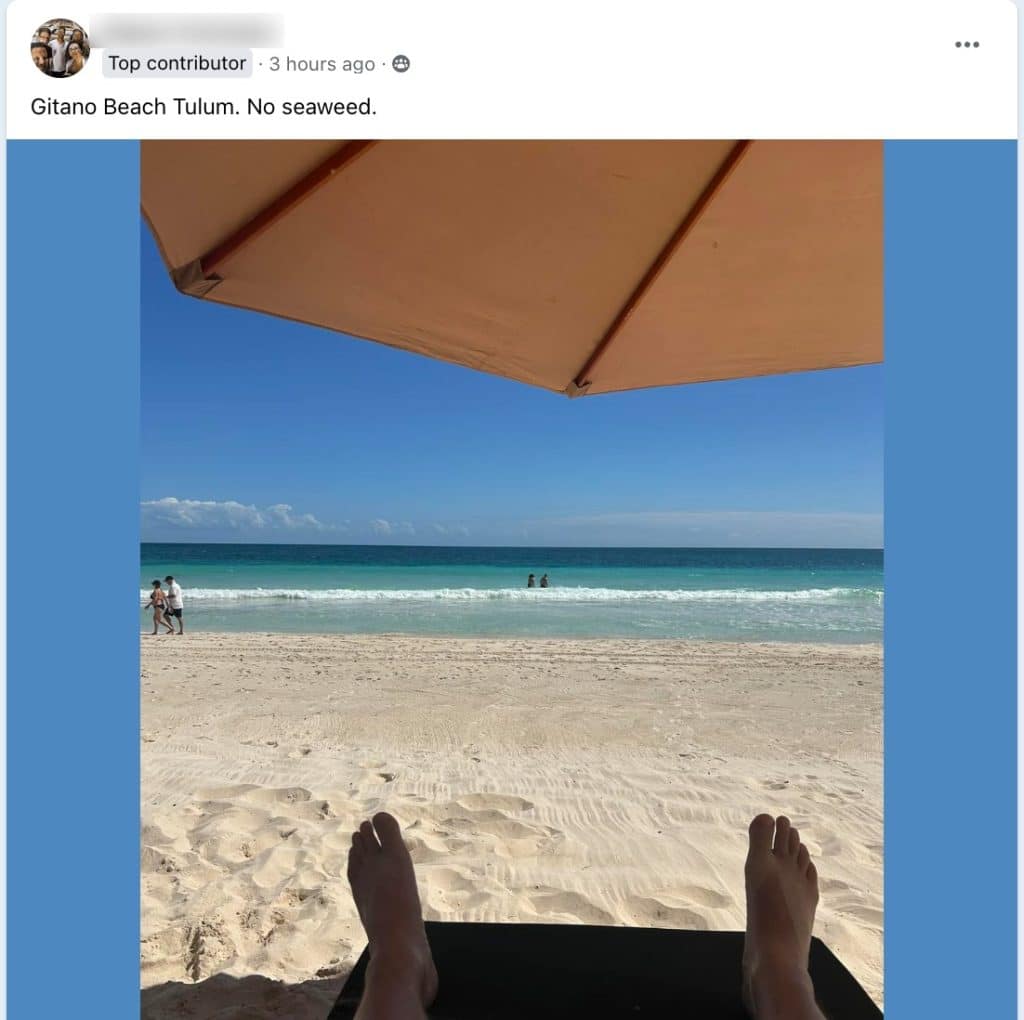
Sargassum levels remain low. This is one of the destinations where it was installed an anti-sargassum barrier in the ocean to prevent seaweed from arriving at its beaches.
Akumal
There are currently no reports of sargassum seaweed on the beaches of this Mexican town.
Cozumel
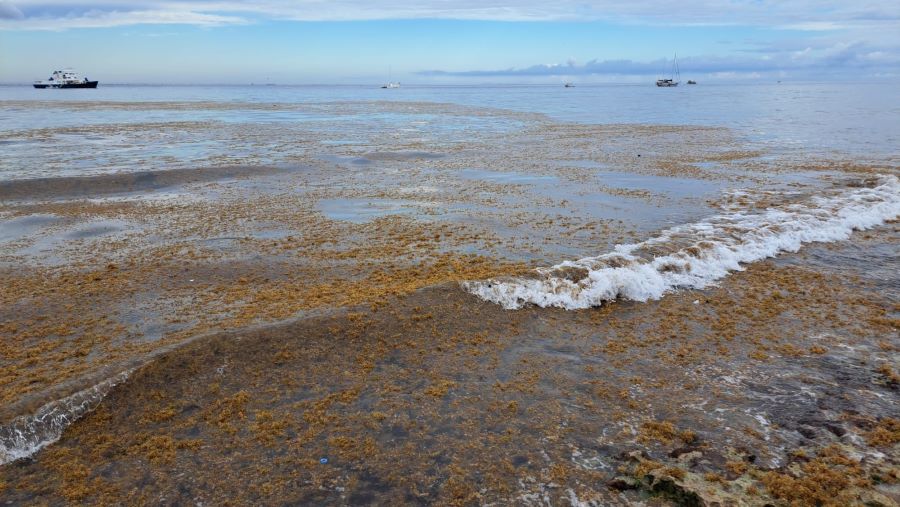
Adverse weather caused a large amount of sargassum to accumulate last week, in front of the boardwalk area, between the San Miguel pier and Fuente del Buzo. It required a special deployment of municipal personnel.
Workers from the Directorate of the Federal Maritime and Terrestrial Zone (Zofemat) removed this sargassum from the beaches before it began to rot. They managed to collect nearly three tons of this organic material.
If you want up-to-date information about the sargassum situation on Mexican beaches, join our Facebook group on the matter right now!
What’s causing the sargassum arrival?
There are numerous explanations for the increasing number of sargassum that we are witnessing in the Caribbean. Nutrient pollution from land that washes into the ocean from roads, farms, cities, and other human sources is one potential cause.
More sargassum has been consistently produced in the Atlantic in recent decades than it has in the past.
When is the best time to visit Mexican Caribbean to avoid Sargassum?
Seaweed causes the turquoise waters of the Caribbean Sea to change color between April and September….
Read full article: Most Beaches In The Mexican Caribbean Remain Sargassum Free In Early February
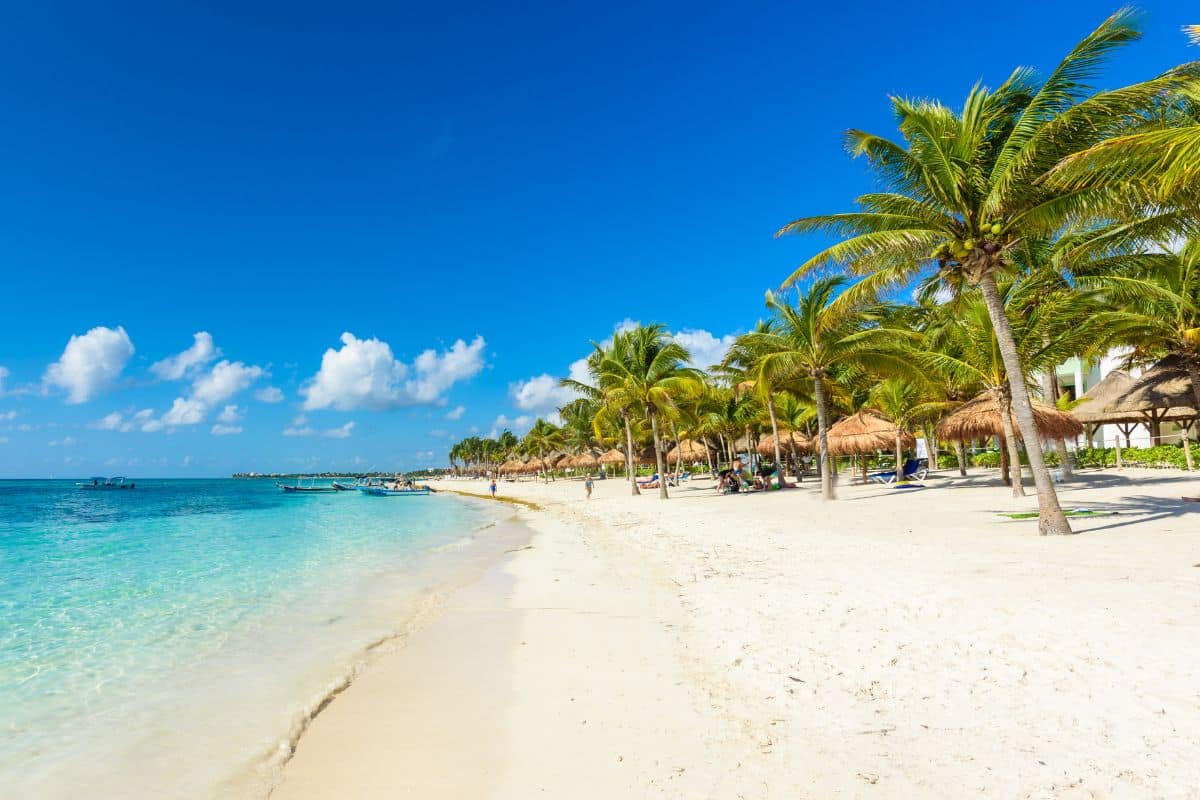
The post “Most Beaches In The Mexican Caribbean Remain Sargassum Free In Early February” by Viktor Vincej was published on 02/07/2024 by www.travelinglifestyle.net



